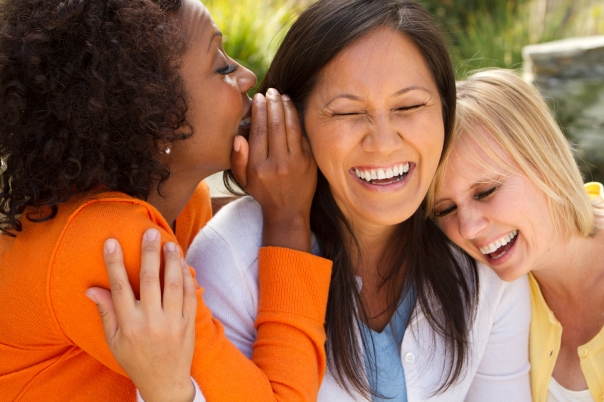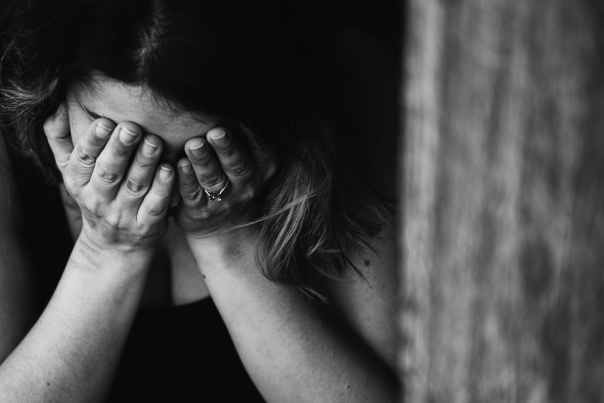
Something ain’t right.
You know that feeling when your nose wiggles and your ears prick up? Clammy handed and with baited breath, you become an observer, spying a constant flow of subtle cues that things are happening all around you? Apparently, that is your gut talking. The unnerving but certain stimuli of something approaching before it’s actually, consciously, happening. If there’s one thing I’ve learned it’s that our gut responds to our environment more readily than our brains do.
Here’s my bugaboo: researchers at Cambridge University have just published a study based on 48 different reports from around the world which shows that women are twice as likely to suffer from severe anxiety as men. A few months ago, Dr Diahanne Rhiney penned an article about the menacingly named imposter syndrome which she described as ‘a confidence-zapping mindset believe that those around us have over-estimated our abilities and that our peers, colleagues and loved ones will, at any moment, realise that we are complete frauds.’ I was, on one hand, fascinated to learn of this sapping non-partisan mindset; yet on the other I was crestfallen to discover yet another manifestation of female anxiety.
Recently, Sarah Vine spoke about her own experiences of chronic anxiety, candidly detailing ‘a permanent sense of underlying panic, a multifarious universe of nagging concerns that, periodically, coalesce into a black hole of worry into which I occasionally fall’.
I have written about the issues effecting women for 18-years and I find myself feeling increasingly disquieted that there is so little shift in our dialogues, concerns, and injustices. I feel that now, perhaps more than ever, we are in dire need of empowering conversations.
My solution is quite simple. We need spaces wherein we can nurture female relationships in a way that feels comfortable, a venue where we design the rules, and an environment that empowers us.
It is a remedy that is too often overlooked and yet having the perspective of other women who have had or are having experiences can be invaluable to our growth.
This year, I attended my very first ‘Be and Beyond’ supper and I was absolutely blown away by its sincerity. I felt refreshed to sit in a space wherein I didn’t feel judged. The energy moved me to the point of tears. I came to realise that this (unexpected) release had grown from a bed upon which I literally could just be.
Afterwards, chatting about this with the green/purple/white-blooded Dr Rhiney, she bashed the nail on the head when she said, ‘At my own events I steer away from focusing purely on the success of women. I do this to avoid imposter syndrome that I know is so prevalent among us. I create authentic environments where we wear our wounds and mistakes on our sleeves in the spirit of empowerment. I want for us as women to slay the beast of imposter syndrome and anxiety, accept our scars and prevail.’
Ah ha! Now there’s an approach to the often-sneered at ‘women’s events’ that I can dig. Of course, my next question was: how can I get involved?
Weeks later we were sat chatting with powerhouse Margaret Carter, CEO of Patchwork pate discussing women in every corner of the world. The rest, as they say, is history. An event was born that is unlike anything I have come across before.
So, in just three weeks, Dr Rhiney and her team shall be travelling to Manchester to host ‘Against All Odds’. Believe me when I say this event is unmissable. Margaret Carter is unarguably one of the most deliciously punchy and perspicacious women I have ever had the privilege of meeting.
Other speakers include the dynamic founders of the interstellar #imnotjohn campaign, Kirsty Day and Grace Dyke and Amanda Brown transformational trainer, and the founder of The Leading Ladies Company. The evenings host is our very own champion, Dr Rhiney.
For one evening in July, let’s come together and be empowered. No flaky showboating or flashy introductions; just a group of women being.
Proceeds go towards Strength With In Me Foundation (S.W.I.M) the charity that has everyone talking (from the House of Commons to Kay Adams) due to its unique approach to Domestic Abuse and young girls. What more could we ask for?
Join me for canapés and tipples by Deansgate Lock on September 8th, to listen to a group of women who will blow you away with their authenticity. I’ll be the one grinning from ear to ear at just how wondrous we truly are and sighing ‘Now, this, feels right.’
Daniella Maison
twitter: @Ladymaison
http://beandbeyond.eventbrite.co.uk
‘I’ve come to believe that the energy and thoughts we put out into the world can become self-fulfilling prophecies. Love yourself, be proud of all you have achieved and face each day with the confidence to believe you are worthy.’ Diahanne Rhiney
http://m.huffpost.com/uk/entry/10160942.html?edition=uk


